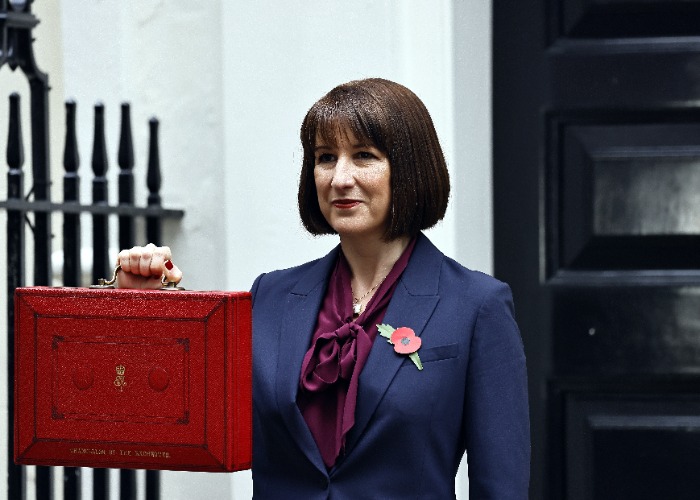Autumn Budget 2025: possible changes to Income Tax, pensions, Child Benefit and Cash ISAs

From National Insurance to Child Benefit, we reveal the nine biggest Budget rumours doing the rounds in 2025.
From Income Tax hikes to a potential mansion tax, we reveal the biggest Budget rumours doing the rounds in 2025.
With the Autumn Budget set for 26 November, economists are warning that tax rises are now all but inevitable.
Following years of sluggish growth, rising costs and soaring Government borrowing, it’s impossible to deny the UK’s finances are in a pretty dire state.
In fact, reports from the National Institute of Economic and Social Research suggest that Chancellor Rachel Reeves may need to plug a £50 billion hole in public finances – although she strenuously denies this claim.
One thing is clear: drastic action is needed. So, where could the axe fall this Autumn?
1. Income Tax debate heats up
Whenever times are tough, attention turns to Income Tax and National Insurance.
One rumoured change is a “tax swap”: raising all Income Tax rates by 2p while cutting National Insurance by the same amount.
Think tank the Resolution Foundation says this could bring around £6 billion a year into the Government’s coffers.
However, analysts at AJ Bell suggest that such a move would likely benefit workers while leaving pensioners worse off.
According to its calculations, a retiree with a taxable income of £35,000 would pay around £450 more each year, while someone with an income of £65,000 would see their bill rise by more than £1,000.
This is because pensioners don’t pay National Insurance on their income, meaning they’d shoulder the full impact of the 2p Income Tax rise without any offsetting reduction – unlike employees, whose NI bills would fall or remain the same.
2. Stealth tax rises set to continue?
If Chancellor Rachel Reeves avoids direct tax hikes, she may lean harder on the “stealth tax” of frozen thresholds.
The freeze on Income Tax bands – including the £12,570 personal allowance and the £50,271 rate for those in the Higher Rate band – currently runs until 2028.
Extending the freeze beyond this date would rake in billions of pounds for the Government through the so-called “fiscal drag”, where rising wages push more people into higher tax brackets.
Influential Labour think tank the Fabian Society estimates that a freeze of just two more years would raise £12 billion.
3. Council Tax reform
According to recent media coverage, Reeves could be toying with the idea of a new property tax, with bills determined by a home’s current market value.
As we have previously reported, the existing system in England and Scotland is based on valuations from the early 1990s, while Wales uses 2003 property values.
The Welsh Government has announced its own reforms, due to take effect from 2028.
Critics say the banding system has become deeply unfair.
Because property prices have risen unevenly across the country, those in lower-value homes now pay a larger share of their property’s worth in Council Tax than owners of high-value homes.
4. Pension tax relief
Pension contributions are one of the UK’s most generous tax perks, with Brits qualifying for relief at their highest income tax rate – 20% for Basic Rate taxpayers, 40% for Higher Rate taxpayers, and 45% for those in the Additional band.
For several months, however, speculation has been mounting that Reeves could introduce a flat 30% rate for all taxpayers.
Doing so would boost returns for Basic Rate savers but slash relief for the highest earners, raising around £3 billion a year.
For instance, a Higher Rate taxpayer contributing £20,000 a year could see their tax relief cut by up to £2,000 annually under a flat 30% system.
There’s also talk of cutting the tax-free lump sum you can take from your pension at 55 (rising to 57 in 2028).
Currently, you can take up to 25% of your pension tax-free, capped at £268,275.
In theory, reducing this could bring in billions for the Government, although it would risk a backlash from older voters.
5. Cash ISAs: a major rethink?
If the rumour mill is correct, the Government could again be considering plans to overhaul Cash ISAs in its statement on 26 November.
According to reports, the Chancellor could slash the annual tax-free cash ISA limit from £20,000 to £10,000 – admittedly, this is more generous than the previous suggestion of £4,000.
There’s also speculation that the ‘British ISA’ could return, offering investors an extra £5,000 tax-free allowance for UK-listed shares.
While this idea was initially the brainchild of the Conservative government, it was later dropped by Labour.
6. New road and vehicle charges
The chancellor is also under pressure to close what green campaigners call the “SUV tax loophole”.
This allows larger vehicles, originally designed for commercial use, to benefit from lower taxes, especially when it comes to road tax (officially known as Vehicle Excise Duty).
With SUVs now dominating sales, the exemption is thought to cost nearly £2 billion a year – prompting calls for a rethink.
One possible solution could be a weight-based levy, which would charge drivers based on the environmental impact of their car.
In fact, This is Money reports that campaign groups are seeking an additional tax of £10 a kilogram for vehicles above a threshold of 1,600kg – adding more than £10,000 to the cost of some vehicles.
Fuel Duty could also come under review. Freezes have been in place since 2011, but maintaining them for another year would cost the Treasury an estimated £6 billion.
7. Stamp Duty shake-up
Homeowners may also see significant changes on 26 November.
If speculation is correct, Reeves could be considering allowing buyers to spread Stamp Duty payments over several years, rather than paying up front.
Supporters argue that this would benefit first-time buyers and promote social mobility. At the same time, critics caution that it would delay billions in revenue at a time when the Treasury needs cash urgently.
There is also talk of reforming who pays. One proposal circulating in Westminster would see sellers, not buyers, paying a new property tax on homes worth over £500,000 – potentially replacing or supplementing Stamp Duty.
8. Mansion tax for luxury homeowners
Another widely discussed option is a “mansion tax” targeting high-value properties.
According to The Evening Standard, the Treasury is considering an annual 1% charge on homes valued at more than £2 million.
This would mean a homeowner with a £2.5 million property paying £5,000 a year, and a homeowner with a £3 million property facing a £10,000 bill.
Approximately 80% of affected homes are in London and the South East, raising concerns that the move could act as a “London levy” on asset-rich but income-poor owners.
9. Two-child benefit cap remains under pressure
The two-child benefit cap remains one of the most divisive issues in the Budget.
At present, this rule prevents parents from claiming support for a third or later child born after April 2017.
While scrapping it could cost around £3 billion a year, it could also significantly reduce child poverty.
Bottom line
Whatever choices Reeves makes on 26 November, one thing seems inevitable: the Autumn Budget will raise more money, whether through income, property or motoring taxes.
Millions are likely to feel the impact — the only question is who will end up paying the most.
|
PROMOTION
|
||
|
Comments
Be the first to comment
Do you want to comment on this article? You need to be signed in for this feature
